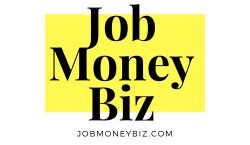As an experienced professional, your resume plays a pivotal role in showcasing your extensive skills and accomplishments. A well-crafted resume can open doors to new opportunities and help you climb the corporate ladder. In this comprehensive guide, we’ll provide you with expert resume tips tailored to experienced professionals. From refining your resume’s format to effectively highlighting your achievements, we’ve got you covered.
Resume Tips for Experienced Professionals: Elevating Your CV
Elevate your career prospects by following these strategic resume tips designed specifically for experienced professionals:
Embrace a Reverse Chronological Format
Start your resume with your most recent experience and work your way backward. This format highlights your recent accomplishments and aligns with recruiters’ expectations.
Summarize Your Expertise
Incorporate a professional summary that encapsulates your years of experience, key skills, and career highlights. This section should grab the recruiter’s attention and encourage them to delve deeper into your resume.
Quantify Your Achievements
Provide tangible results for your accomplishments. Use specific numbers to showcase the impact you’ve made, such as revenue generated, projects completed, or teams managed.
Focus on Relevant Experience
Tailor your resume to the job you’re applying for. Highlight experiences and achievements that directly relate to the role’s requirements, showcasing your suitability.
Showcase Continuous Learning
Demonstrate your commitment to professional growth by listing relevant certifications, workshops, and training programs you’ve completed.
Highlight Leadership Abilities
If you’ve held leadership roles, emphasize your ability to manage teams, drive initiatives, and mentor colleagues. Highlight instances where you’ve led successful projects.
Use Keywords Strategically
Incorporate industry-specific keywords throughout your resume. These keywords enhance your resume’s visibility in applicant tracking systems (ATS) and catch recruiters’ attention.
Leverage the Power of Networking
If you’ve acquired opportunities through networking, mention them. Referrals and recommendations add credibility to your application.
Include a Portfolio (if applicable)
For roles that require a creative or technical portfolio, provide a link to showcase your work. This can be especially beneficial for designers, writers, or developers.
Show Adaptability
Highlight your ability to adapt to changing environments, technologies, or industries. This showcases your versatility and willingness to embrace new challenges.
Address Employment Gaps
If you’ve experienced gaps in your employment history, address them transparently in your resume. Explain any professional development or freelance work you undertook during those periods.
Keep It Concise
While experience is valuable, an excessively lengthy resume can be overwhelming. Aim for a length of two pages, focusing on the most relevant and impactful information.
Demonstrate Soft Skills
Incorporate soft skills such as communication, problem-solving, and leadership throughout your resume. These qualities are highly valued by employers.
Highlight Industry Recognition
If you’ve received awards, accolades, or industry recognition, mention them. This adds prestige to your profile.
Provide a LinkedIn Profile
Include a link to your LinkedIn profile. It acts as an extension of your resume and allows recruiters to learn more about you.
FAQs
Q: How far back should my work experience go?
A: Generally, include the past 10-15 years of experience. Prioritize recent and relevant roles.
Q: Is it necessary to include references?
A: References can be provided upon request. Save space by excluding them from your resume.
Q: Can I include personal interests?
A: Only include hobbies or interests relevant to the job or that demonstrate valuable skills.
Q: How can I make my resume stand out visually?
A: Use a clean layout, bold headings, bullet points, and a consistent font. Incorporate strategic use of colors sparingly.
Q: Should I include every job I’ve ever had?
A: Focus on roles that are relevant to the job you’re applying for. Tailor your resume to match the position’s requirements.
Q: How do I address a career change in my resume?
A: Emphasize transferable skills and experiences that align with your new career path.
Conclusion
Your extensive experience deserves a resume that reflects your achievements and expertise. By following these expert resume tips for experienced professionals, you’ll be better equipped to create a compelling CV that highlights your skills, accomplishments, and unique journey. Whether you’re seeking a new challenge or aiming for a higher position, a well-crafted resume can set you on the path to success.
Anupam M is blogging on this site on different aspects of technology, job, and business. He is an experienced IT professional with an Engineering degree from a premier NIT. Know more


